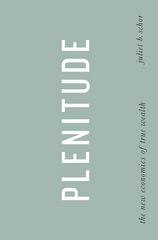Question
This is for my Economics course: For the last few years, buying a restaurant liquor license in Pennsylvania - or R classification - had priced
This is for my Economics course:
For the last few years, buying a restaurant liquor license in Pennsylvania - or "R" classification - had priced most buyers, other than the big chain stores, out of the market, with bidding prices reaching a half-million dollars or more. That came after R license prices sat around $100,000 in high-demand areas at the start of the 2010s.
But when Pennsylvania Liquor Control Board in the last few years allowed grocery and convenience stores to sell beer and wine, it opened up a bidding war from corporate behemoths like Weis, Giant, Sheetz and others to gobble up any R license that was available - or could become available suddenly at the right price. At the time, the R license and E (eating place) license were the only licenses available to grocery stores in Pennsylvania.
- What is the likely consequence of the new policy for liquor prices in Pennsylvania?
- How would you expect the prices for food items on restaurant menu to change when the price of the liquor license goes up?
- As normally happens, the market for R licenses has at least begun to correct itself, if not fully corrected itself. Grocery and convenience stores have identified their priority stores to sell beer and wine, and have already bought licenses for those stores. Does that mean that the prices will likely go back to around $100,000? Why or why not?
- Restauranteurs also have started to zig when others were zagging. Potential bar and restaurant owners that normally would have tried to buy an R license instead have opted for a much-cheaper "manufacturing" liquor license, which allows the licensee to manufacture wine, malt beverages or spirits and to sell food and their products at their main location and additional board-approved locations. Does it make sense for the manufacturing license to be cheaper? Why or why not?
- The prices got so high in certain in-demand counties that some longtime restaurant and bar owners decided to sell their license and close their business, using the liquor license proceeds as a retirement fund of sorts. This was especially true of establishments that may have run afoul of Pennsylvania Liquor Control Board regulations in the past, and who could have been in danger of losing their license without compensation if enforcement proceedings were brought against them. Would it be fair to conclude that more expensive liquor licenses result in higher average quality of bars and restaurants? How does that reconcile with our general intuition that competition enhances the quality of the product?
Step by Step Solution
There are 3 Steps involved in it
Step: 1

Get Instant Access to Expert-Tailored Solutions
See step-by-step solutions with expert insights and AI powered tools for academic success
Step: 2

Step: 3

Ace Your Homework with AI
Get the answers you need in no time with our AI-driven, step-by-step assistance
Get Started


